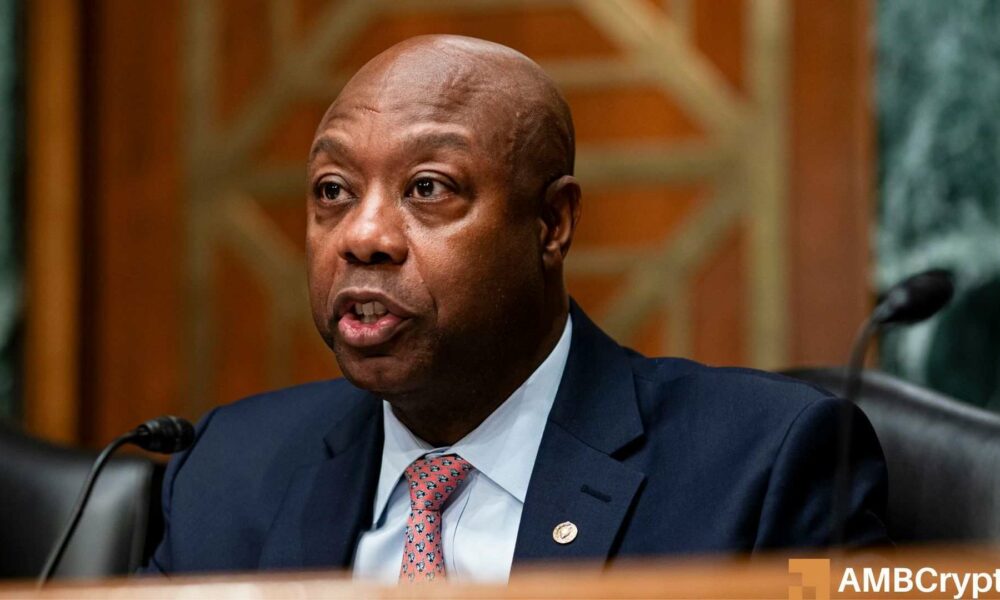Understanding the Importance of Timely Crypto Market Structure Legislation
The landscape of cryptocurrency is witnessing a pivotal shift, with the urgency to finalize a comprehensive crypto market structure bill gaining momentum. Senate Banking Committee Chair, Senator Tim Scott, recently emphasized the need to mark up the legislation next month, aiming for a Senate vote early next year. This timeline is viewed as crucial for the digital asset ecosystem, with leaders like Coinbase’s CEO, Brian Armstrong, asserting that timely regulation could “unlock crypto” in the U.S. This article delves into the current legislative climate surrounding crypto, explores the challenges ahead, and highlights the potential impacts of regulation.
The Crucial Timeline for Crypto Regulation
Senator Scott’s commitment to advancing the crypto market structure bill is particularly significant as it reflects a broader consensus that regulatory clarity is essential for the growth of the cryptocurrency industry. The rapid evolution of digital assets necessitates urgent legislation to protect investors and provide guidelines for businesses, ultimately fostering innovation in the sector. A successful bill could create a stable environment for cryptocurrencies to thrive, aligning them with traditional financial markets and attracting institutional investors.
Legislative Hurdles and DeFi Concerns
Despite the optimism surrounding the timeline, the path to finalizing the legislation is fraught with challenges. A key point of contention lies in the decentralized finance (DeFi) sector, where proposed regulations have faced pushback from several stakeholders. Democrats, led by Representative Reuben Gallego, insist on comprehensive DeFi oversight, which they contend is essential for consumer protection. However, this stance has been labeled as a “stalling” tactic by some Republicans, showcasing the political divide that complicates this legislative endeavor. This political contention could hinder progress, despite assurances from both sides about a collaborative approach.
Collaborative Efforts and Industry Lobbying
Underpinning the developing narrative is a concerted effort from the cryptocurrency industry to advocate for favorable legislation. Following intense lobbying from crypto leaders in October, factions within Congress resumed productive discussions aimed at reconciling their differences. This collaborative spirit was evident when the Senate Agriculture Committee released a draft discussion paper that invited further feedback on the contentious DeFi section, signaling an openness to refining the legislation based on industry insights. Engaged stakeholders emphasize that the bill’s success hinges on its ability to blend diverse viewpoints into a cohesive final product.
The Markup Process: A Critical Stage
The markup stage of the legislative process is crucial for refining proposals and ensuring that all pertinent issues are addressed. During this phase, committees such as the Senate Banking Committee and the Senate Agriculture Committee will engage in deliberations to assess the bill’s language concerning securities regulations and investor protections. Given that the early drafts predominantly reflect Republican ideas, the inclusion of Democratic perspectives is essential to cultivate bipartisan support. This dynamic illustrates the need for a balanced approach that addresses the varied concerns inherent in digital asset regulation.
Looking Ahead: Potential Outcomes and Industry Impact
Should the legislation proceed smoothly through the markup phase, its eventual passage could mark a significant milestone for the U.S. cryptocurrency landscape. Coinbase’s CEO expressed optimism that clear regulatory frameworks would emerge in the near future, beneficially positioning the U.S. as a leader in the crypto arena. However, industry experts, including Cody Carbone from the Digital Chamber, caution that the effectiveness of the proposed bill hinges on continuous collaboration from both parties to achieve a singular, well-rounded legislative product.
Conclusion
As the digital asset sector continues to evolve rapidly, the urgency to establish a clear regulatory framework cannot be overstated. The upcoming markup of the crypto market structure bill presents a critical opportunity for lawmakers to craft legislation that could propel the U.S. forward in the global cryptocurrency landscape. However, navigating the challenges posed by political divides and contentious issues such as DeFi regulation will be crucial. With ongoing advocacy from industry leaders and a commitment to bipartisan cooperation, there remains hope for achieving legislation that secures innovation while protecting investors, thereby “unlocking crypto” for the future.


